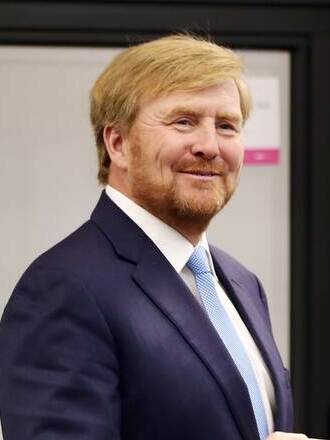
King Willem-Alexander of the Netherlands has issued a formal apology for his country's historical involvement in slave trading during a commemoration event marking the abolition of slavery in
Amsterdam.
Speaking at the Keti Koti ceremony held in Oosterpark, the king expressed remorse for the actions of the Dutch state, acknowledging that people had been treated as commodities, exploited, and abused for centuries. He stated, "On December 19 last year, the prime minister offered his apologies in the name of the Dutch government. Today, as your king and as part of the government, I personally extend those apologies."
The crowd erupted in cheers upon hearing the king's words, which came after years of advocacy to acknowledge the enduring impact of slavery. Prime Minister Mark Rutte had previously apologized in December, emphasizing the need to continue the conversation rather than considering the matter resolved.
During his speech, King Willem-Alexander drew a comparison between the situation in Amsterdam, where a declaration was issued in 1644 stating that all individuals in the city were free, and the lives of those forcibly transported to the colonies across the Atlantic. He highlighted the stark contrast, stating, "What was taken for granted in this city and this country did not apply beyond our borders. Slavery was forbidden here, but not there."
The king and Queen Maxima engaged in conversations with individuals from Caribbean nations, as well as those with Surinamese and Indonesian roots, to gain a deeper understanding of the lasting impact of slavery on their lives. He acknowledged the profound pain that still resonates within their communities, stating, "They have made clear to us how deeply the pain still runs through their veins."
While some may view the apology as belated, the king emphasized the importance of building a more equitable society and encouraged open-heartedness towards those who strive to contribute to a society where everyone can participate fully. He urged the recognition of diverse experiences, backgrounds, and perspectives.
The Keti Koti ceremony, which marks the 150th anniversary of slavery's abolition in Suriname, was accompanied by a festival on Museumplein, where the king's speech was livestreamed. This annual event has been held in Amsterdam on July 1 since the installation of the national memorial to slavery in the park in 2002. It has been a national holiday in Suriname and the Antillean islands since 1863.
As part of a "healing process," the royal family commissioned a study into their own involvement in the slave trade. The study revealed that the house of Oranje-Nassau amassed the equivalent of €545 million in today's currency through slavery, exploitation, and forced labor.
Prime Minister Rutte and Queen Maxima were also present at the Oosterpark ceremony, alongside Finance Minister Sigrid Kaag and Franc Weerwind, the Minister for Legal Protection, who has Surinamese ancestry. Several other ministers attended ceremonies in the Dutch Caribbean nations.
Furthermore, monuments commemorating slavery are being unveiled in Utrecht and Almere, bringing the nationwide total to eight. Additionally, the municipalities of Middelburg and Vlissingen, both significant trading ports in the 17th century, are issuing formal apologies. Despite the refusal of the Vlissingen municipal council to approve a sanctioned memorial, campaigners installed an unofficial tribute in the harbor on Friday, emphasizing the importance of acknowledging historical injustices. Photo by Ministerie van Defensie, Wikimedia commons.



































